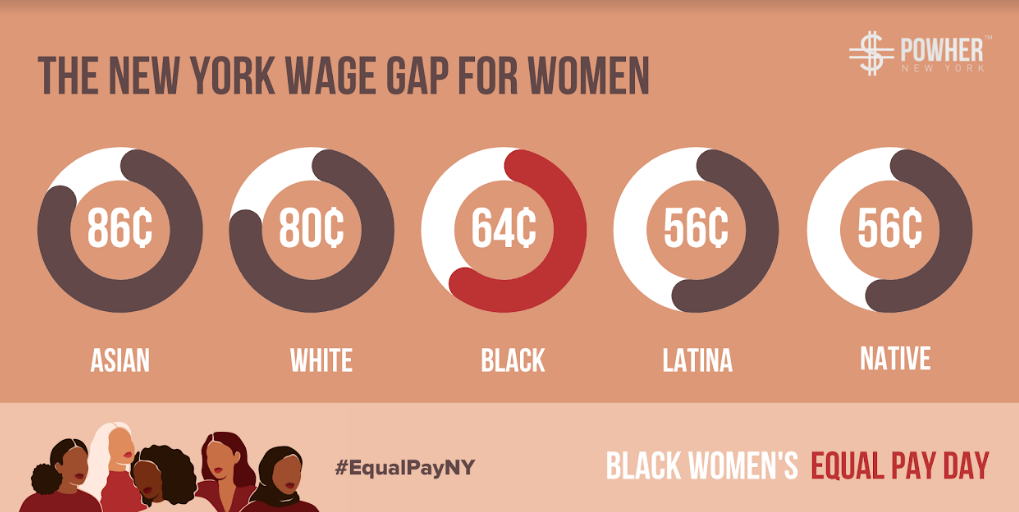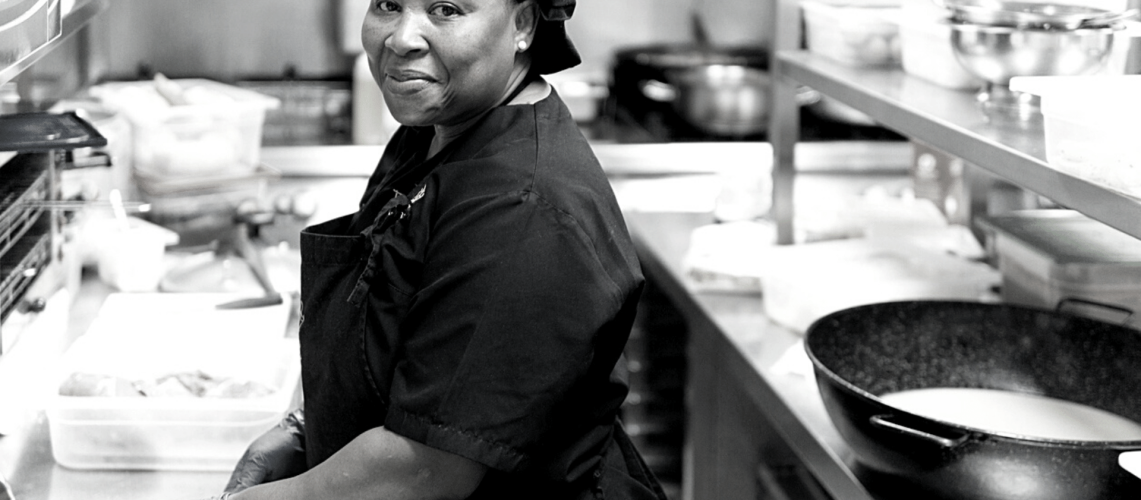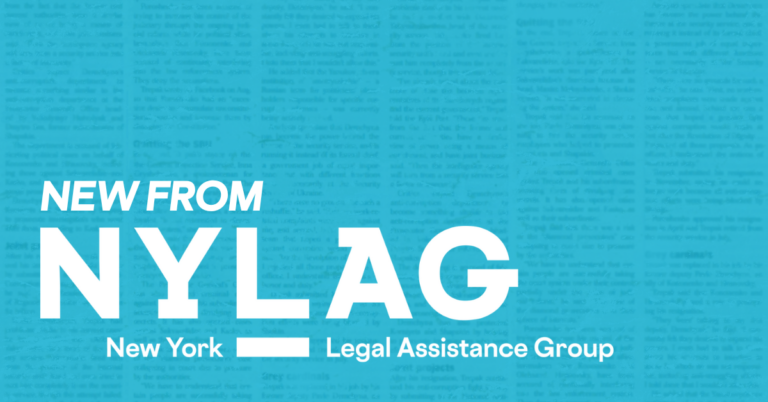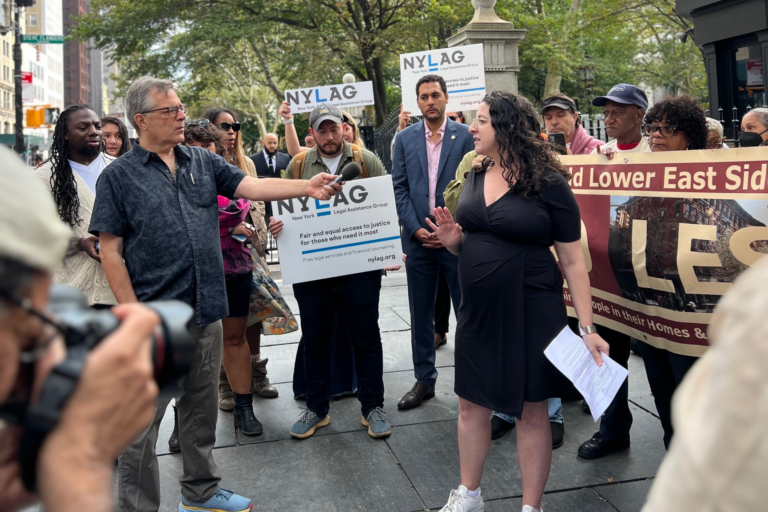What is Black Women’s Equal Pay Day?
Imagine you are a White man with two kids and are the primary breadwinner of your household. You work full-time and earn $65,200 in a given year. This is standard enough, right?
Now, do the same thought experiment but change two critical characteristics: your gender and your race.
In this new scenario, you also work full-time, have two children, and are the primary breadwinner of your household, but now, you are a Black woman. How long will it take you to earn the same amount as the person in the first scenario?
The answer is a long time. In 2021, it will take a Black woman in the United States an average of 20 months to earn the same amount as her White male counterparts. This is one full year of work plus the following eight months from January to August. This is why Black Women’s Equal Pay Day falls in the month of August.
In New York, Black women earn an average of $0.64 to every dollar earned by White men. Over the course of an average lifetime, Black women lose $964,400 in total wages due to the wage gap.
Why does the wage gap exist?
The wage gap persists across nearly every occupation and when accounting for other factors like educational attainment. Research shows that the majority of the current wage gap comes from pay differences within occupations rather than from differences between occupations. What happens within each occupation is more significant than the different occupations that women end up working in. This is because hours of work in many jobs are compensated more when performed at particular moments and when hours are more continuous. For example, individuals in some occupations work 70 hours a week and receive far more than twice the earnings of those who work 35 hours a week.
How does race affects the gender wage gap?
The wage gap for Black women is tied to the racial wealth gap in the United States. Wealth is a calculation of a household’s total assets (like retirement and savings accounts) minus their debts (like credit card bills and student loans). According to the 2019 Survey of Consumer Finances, the median Black household has a net worth of $24,100. In contrast, the median net worth of a White household is nearly eight times more at $188,200.
The racial wealth gap causes a cycle of hardship over the course of generations. For some Black families, the racial wealth gap can be traced back to experiences of slavery and segregation. Others may not have had access to certain educational opportunities because of unequal access to government programs like the G.I. Bill and redlining, which is the practice of segregating neighborhoods in the United States by race and often leads to unequal access to public services like schools and libraries. The wage gap exists for many intersecting reasons, but access to wealth is a relevant factor because it can limit the resources a family may have to invest in education, social networks, and career advancement.
Discrimination can occur even when workers have equal levels of education and are applying for the same job. One study of racial bias in the low-wage labor market in New York finds that applicants who are Black are half as likely as equally qualified applicants who are White to receive a callback or job offer. Similarly, research shows that making job candidates’ genders anonymous helps to reduce bias in the job application process.
Why does Black Women’s Equal Pay Day matter?
Equal pay does not only affect individuals. It affects the entire community. Reduced pay for Black women can result in their lower engagement in the economy. In addition, four in five Black mothers are the breadwinners of their families. (This includes both married and single women.) Black women being the primary providers means that the wage gap affects not only individual women in the United States but their entire families, including millions of children (Table C3 in link).
If you are a Black women, Black Women’s Equal Pay Day is an acknowledgment of the unique challenges that you face in the job market. It is also a call to action. New York Legal Assistance Group (NYLAG) sees you and supports you both with our one-on-one legal and financial counseling services as well as in our impact litigation and public advocacy campaigns.
What action can our community take?
Black Women’s Equal Pay Day is a community challenge, and government support is critical, economists say, because there is little that an individual can do on his or her own to close the pay gap.
One way to close the pay gap is by mandating salary range disclosures. Proposed New York State salary range transparency laws (S5598A / A6529) would require employers in New York State to disclose the salary or salary ranges to applicants for new job posts. Current employees would be able to request the range of compensation for their position annually from their employer. Similar legislation in other countries (Denmark, the United Kingdom, Iceland) highlights that pay transparency is central to addressing pay inequality.
Maryland, California, Colorado, and Washington State have already passed salary disclosure laws to address this issue. If you are interested in making change in New York, reach out to your New York State Senator, share this post with your friends and family, and expand the conversation to support this type of meaningful legislation today.








